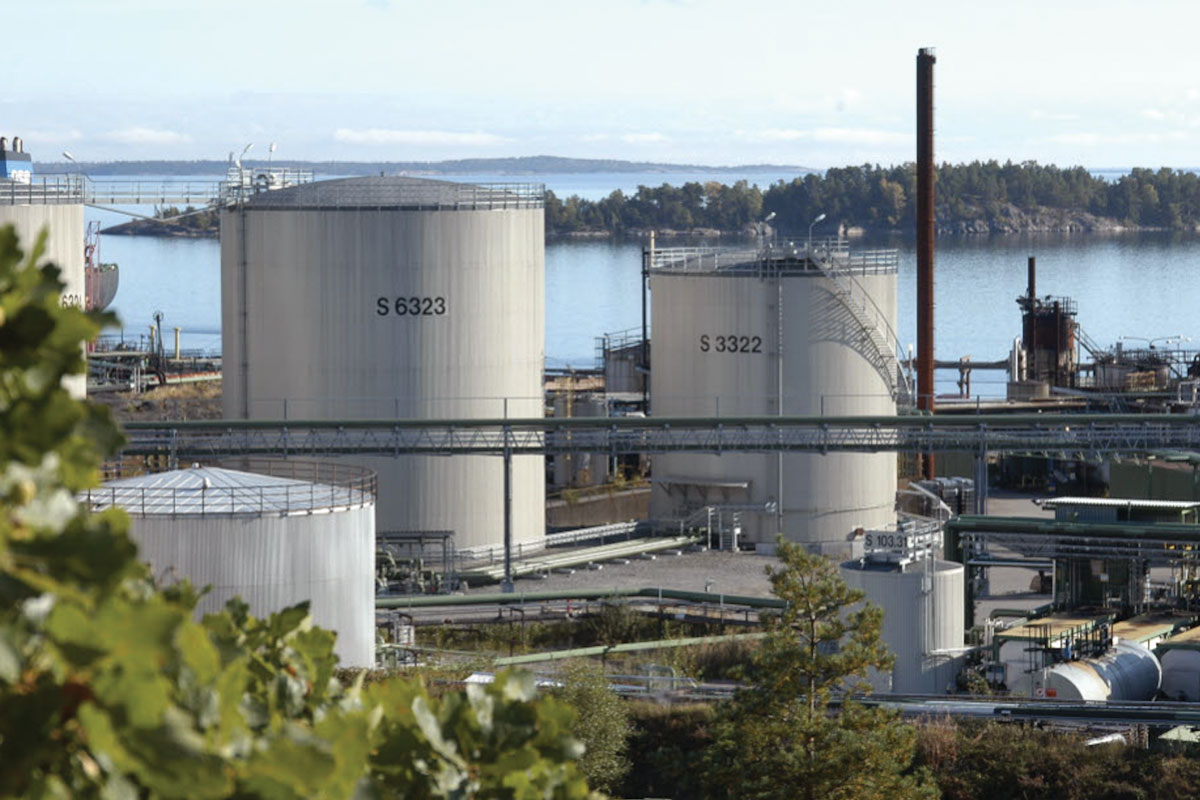A New Refinery Landscape

First published in the July 2021 issue of Quarry Management
The overall impact of IMO 2020, COVID-19 and the closure of outdated refineries has increased the benefit of bitumen expertise and specialization. The question is who will produce bitumen in the future?
On 1 January 2020, the International Maritime Organization (IMO) reduced the limit for sulphur dioxide emissions in marine bunker fuel from 3.5% to 0.5%. The new guidelines – commonly known as IMO 2020 – had a major impact on the refinery industry, with many oil companies choosing to convert their production in order to handle the transition to lighter bunker oil.
‘The impact of IMO 2020 was still less than might have been expected, as the new regulations coincided with the COVID-19 pandemic. Demand for aviation fuel, diesel and petrol fell dramatically as travel ground to a halt and demand for marine bunker was also reduced, resulting in increased pressure on the profitability of fuel refineries,’ said Wim Teugels, crude and feedstock specialist at Nynas.
‘The direct impact of the pandemic was that many fuel refineries cut their production in order to balance reduced demand and storage capacity. As the situation eventually stabilizes, there will still be a surplus in the supply of fuel in Europe, which means that we can expect reduced refinery capacity in the next few years.’
This is a trend that is being reinforced by the rapid growth of electric vehicles; by 2030–2035 almost half of new cars are expected to be electric.
Regional disruption
Alongside the challenges presented in the wake of IMO 2020 and COVID-19, the oil industry has for many years been undergoing a process of change that has seen many outdated so-called Group I refineries being either upgraded or closed down. Some of these manufacture not only base oils, but also bitumen.
‘About half of the refineries in Europe produce bitumen,’ continued Mr Teugels. ‘But then you have to remember that bitumen is usually a very small element of their total production.’
Refineries with a high proportion of heavy fuel oil (HFO) are particularly vulnerable, and many of these will probably close down or convert to process other types of raw material. As a consequence, coupled with continued exports outside Europe, the European market will be more balanced.
‘The capacity reductions of recent years will have an impact when demand in the market recovers after the pandemic. There will be less bitumen available for export, and the refineries producing bitumen will have to increase their utilization rate in order to achieve profitability in bitumen production.’
Increased specialization
Against this background, it is no surprise that this year has already seen three bitumen producers announce that they will be closing refineries or stopping their bitumen production.
‘Initially, the existing production capacity can cover these losses, but this might still cause complications in the supply chain,’ explained Mr Teugels. ‘The result will be that bitumen will require more and more specialization when it comes to the choice of crude oil, logistics and blending facilities.’
The changes now taking place in the oil market will, therefore, result in reduced production of bitumen, and this at the same time as demand is expected to increase in line with general economic growth (GDP).
‘For Nynas, the ongoing transition is beneficial, as for us, in contrast to most other oil companies, bitumen is a core business. We are now working with a feedstock slate adapted to our specialized production and focused on products that provide the performance required by our customers,’ concluded Mr Teugels.








